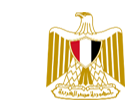President
Abdel Fattah El-Sisi reviewed the progress of Egypt’s education reform agenda
and the start of the new academic year, which witnessed an unprecedented 87.5%
student attendance rate, alongside the launch of the country’s first Egyptian
Baccalaureate System, already enrolling 88% of eligible students.
During a meeting
with Prime Minister Mustafa Madbouli and Minister of Education and Technical
Education Mohammad Abde Latif, the President followed up on efforts to ensure
the smooth operation of the academic year, tackle classroom overcrowding, and
address teacher shortages.
Presidential
Spokesman Ambassador Mohammad El-Shennawi stated that the President also
reviewed the rollout of 94 newly developed curricula across all educational
stages, a key milestone in Egypt’s drive to modernize learning and align it
with the requirements of the digital age and the Labour market.
Minister Abdel Latif
briefed the President on the latest steps to overhaul the education system,
noting that a high-level committee comprising teachers, academics, and
university professors had been formed to review the updated curricula.
He added that a
comprehensive training and qualification program for teachers is being
implemented in cooperation with the United Nations Children’s Fund (UNICEF),
with a focus on modern pedagogical methods and digital integration.
The reforms also
introduce programming and artificial intelligence as core subjects for the
first time.
El-Shennawi said
that President Sisi directed the continuation and deepening of reform efforts
to deliver a high-quality, modern education system that keeps pace with global
developments in science and technology.
President Sisi
emphasized the importance of aligning curricula with real Labour market needs
to ensure that graduates possess the competencies and skills required by
Egypt’s rapidly evolving economy.
The meeting also
reviewed the 2025–2026 investment plan for the education sector, which
prioritizes the expansion of competitive and high-performing schools, as well
as the enhancement of technical and applied education.
President Sisi also
emphasized the importance of strengthening partnerships with the private sector
to establish more specialized technology schools that can produce skilled
graduates capable of meeting the demands of both local and international
markets.
The president was
further briefed on the National Program for Literacy and Reading Skills, which
targets struggling primary students by building teachers’ capacities to develop
reading and writing proficiency.
The meeting also
discussed the implementation of the Egyptian Baccalaureate System, which was
introduced this year.
The education
minister explained that, while it shares the same educational foundations as
the traditional secondary system, the baccalaureate offers a more flexible
framework with fewer subjects and multiple testing opportunities.
Concluding the
meeting, President El-Sisi emphasized the need to focus on education fields
linked to modern technology, such as artificial intelligence, digital
transformation, and innovation, describing them as key drivers of Egypt’s
development agenda.
He also directed the
government to intensify public investment in education and to continue
transforming the system into one that encourages creativity, entrepreneurship,
and critical thinking, with technology embedded as a central component of the
learning process.
President El-Sisi
also reaffirmed his commitment to improving teachers’ welfare, ordering the
disbursement of an EGP 1,000 teaching allowance starting 1 November, and
instructing the government to prioritize enhancing teachers’ economic
conditions as a cornerstone of national policy in the coming phase.
Source: Al-Ahram Online


